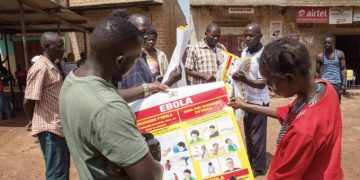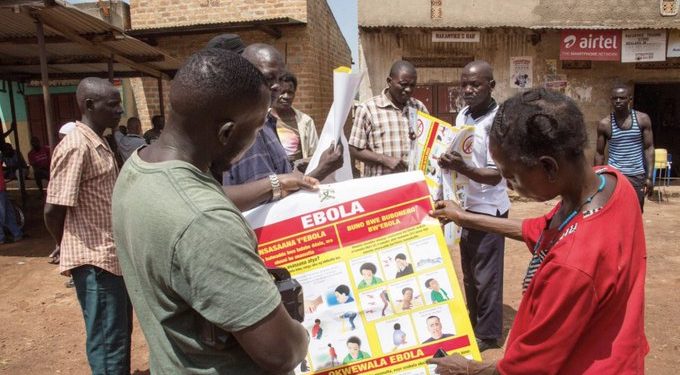The Director-General of the World Health Organization, Dr Tedros Adhanom Ghebreyesus, has said a total of $67.9 million is needed for the Ebola response in Uganda.
“It’s very important that partners act urgently together to ensure adequate resources for a scaled up Ebola response in Uganda, both in the country led by the Ministry of Health as well as in supporting neighbouring countries to prepare,” Dr Tedros said on Friday.
“A total of $67.9 million is needed for the Ebola response in Uganda and the current gap stands at $58.2 million,” he clarified.
He said the regional strategic readiness and response plan requires $133 million to ramp up prep in neighbouring countries.
“I thank and for their contributions. We urge donors to scale up their support quickly,” he tweeted.
During her visit to the Entebbe-based Medical Research Council (MRC)/UVRI and London School of Hygiene and Tropical Medicine research unit this week, Princess Anne called for global efforts to fight Ebola in Uganda.
The daughter of Queen Elizabeth II was in Uganda on a 4-day visit.
The British High Commission in Kampala announced two weeks ago that the UK would provide £2.2m (Shs9.3 billion) to international agencies involved in the fight against the Ebola outbreak in Uganda.
Tracing Ebola contacts
With support from World Health Organization (WHO) and partners, the Ugandan Ministry of Health has trained and deployed around 300 contact tracers who play a critical role as the country looks to curb the spread of the disease.
According to Dr Bernard Logouomo, the Ministry of Health Surveillance Team Lead in Mubende District, contact tracing is key to ending the outbreak.
Contact tracers follow a questionnaire designed to assess if a contact has Ebola symptoms.
Every contact tracer works with a maximum of 10 village health workers, who are volunteers trained in diseases surveillance.
Recruited by communities, village health teams help build trust and overcome fears among responders.
In addition to the deployment of contact tracers, two hotlines were created for communities to report suspected cases. Investigators follow a list of questions designed to assess the need to dispatch an ambulance or a clinical officer.
Once a case in confirmed, a case investigation team establishes a list of contacts, depending on where the patient was likely to have been infected and who they may have met afterwards.
After contacts have been located and screened, village health teams take over to monitor them for any symptoms for 21 days ‒ the Ebola incubation period.
Beyond this important supporting role, these teams also provide invaluable assistance in raising awareness of the disease within their communities. Since the start of the epidemic, the Ministry of Health has trained over 1200 village health team members, also with support from WHO and partners.
With only 25% of contacts followed up every day in the first days of the outbreak, contact tracing quickly improved. By mid-October, nearly 94% of 552 contacts were seen and monitored daily for 21 days.
Additional Reporting by WHO









